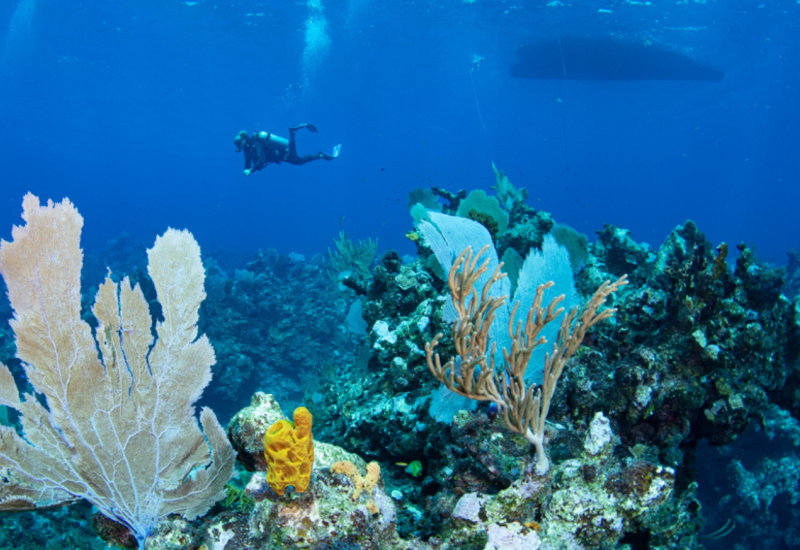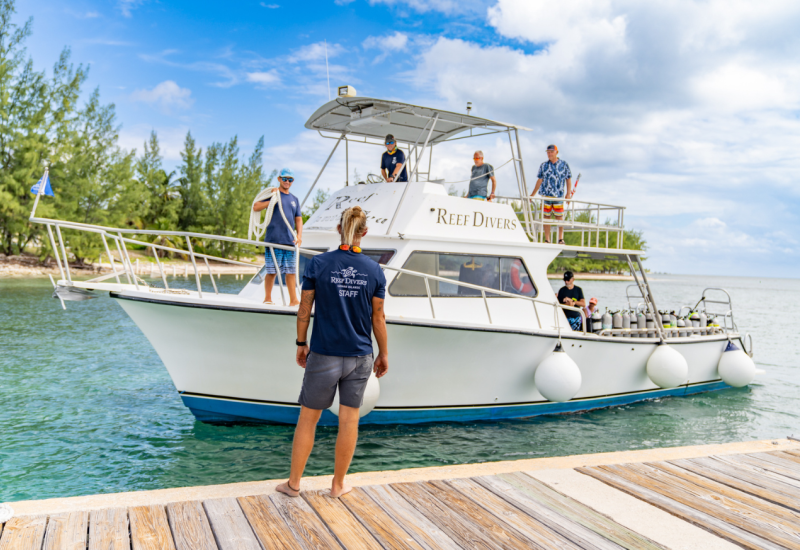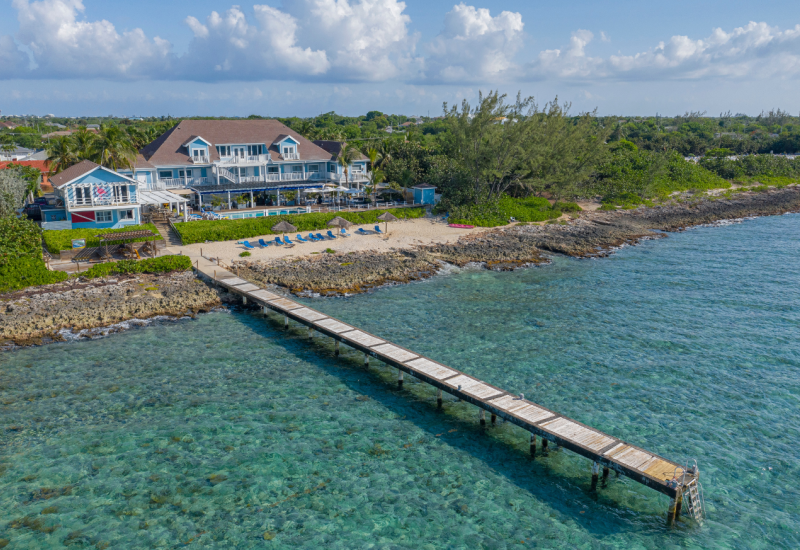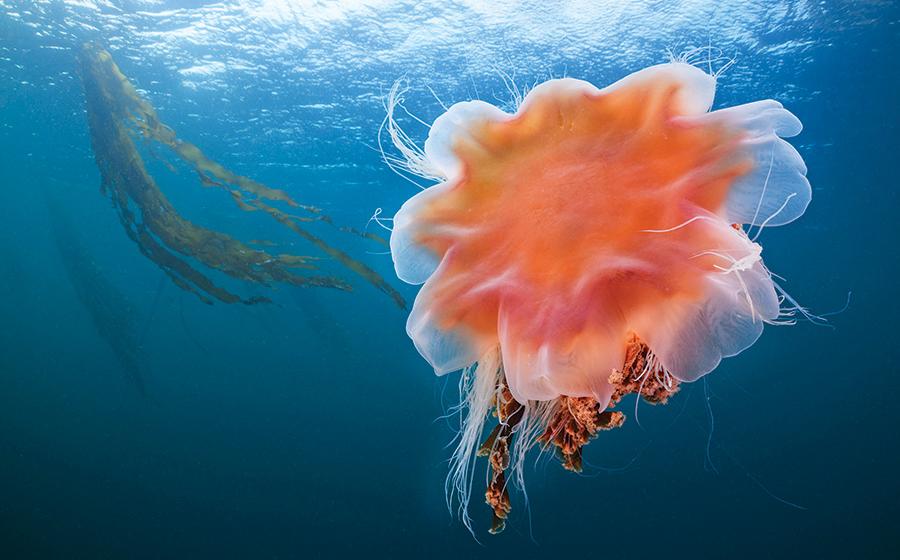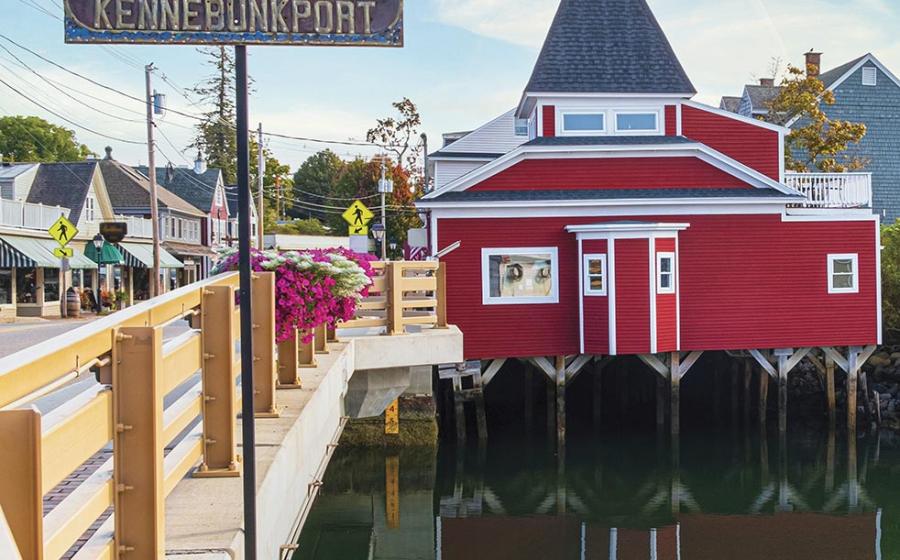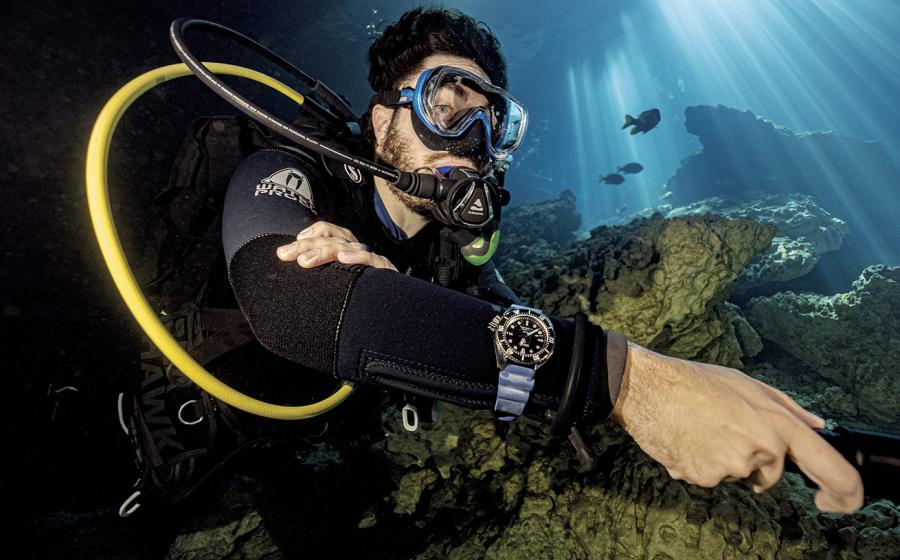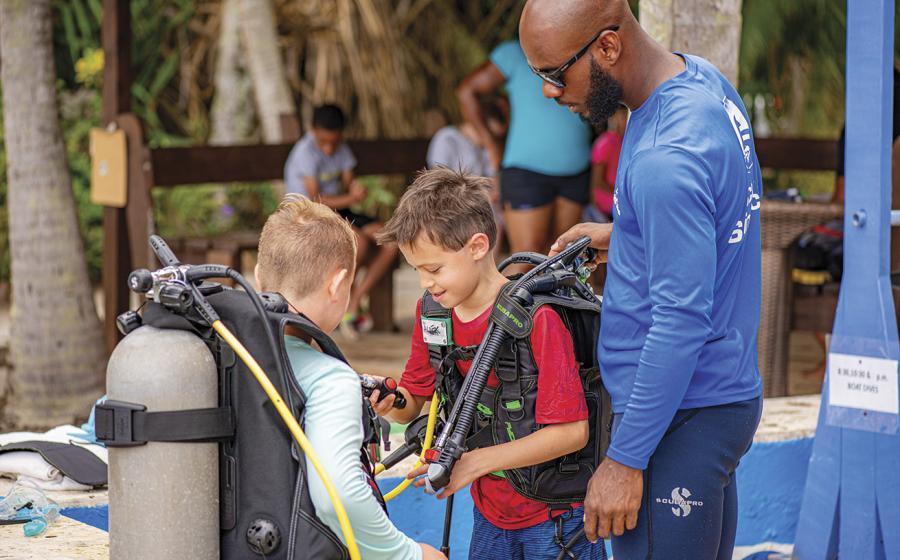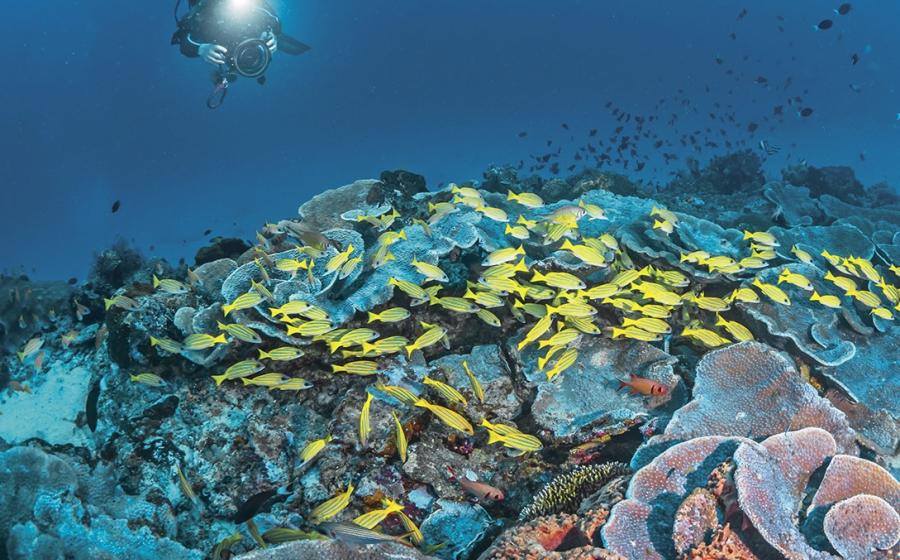At the Back of the Boat: Cody Unser

At the Back of the Boat: Cody Unser
Courtesy of the Cody Unser First Step Foundation
At the Back of the Boat
Interviews with Notable Figures in the Dive Industry
**
July 2011:** Cody Unser, Founder of Cody Unser First Step Foundation
During sixth-grade basketball practice in 1999, Cody Unser fell ill with the spinal disease Transverse Myelitis (TM) and was admitted to the hospital. The next day, she could no longer walk. Paralyzed and in a wheelchair but energized in her quest to build awareness of TM and find a cure for paralysis, Unser started the Cody Unser First Step Foundation. Two years later, at her family’s urging, she traveled to Cozumel, Mexico, to become PADI certified. Lost sensation reappeared, and the sport buoyed her spirit in a way nothing else had. Since that trip, Unser has become dedicated to sharing the physical and mental benefits of scuba. Through her organization Operation Deep Down, an offshoot of her First Step Foundation, she is responsible for certifying more than 100 veterans. This summer, we spoke with Unser about a study she helped sponsor to research the healing effects of scuba on paralyzed divers.
**
Bottom Time: We understand that First Step Foundation helped organize a study that looked at the healing powers of scuba on disabled divers. When was that?**
Cody Unser: From May 5th to May 12th, 2011, the Cody Unser First Step Foundation teamed up with researchers from Johns Hopkins University, International Center for Spinal Cord Injury at Kennedy Krieger Institute, and CUFSF supporters, the Paralyzed Veterans of America and PADI scuba diving instructors to not only certify nine paralyzed vets but to also study the effects of scuba on the paralyzed body.
BT: Who was involved?
CU: A group of 30 — the nine vets, adaptive scuba instructors, volunteers and foundation staff — gathered in the beautiful waters of Grand Cayman.
BT: How does scuba diving feel for those with paralysis?

CU: The great Jacques Cousteau expressed how he felt about the freedom of scuba diving by saying, “From birth, man carries the weight of gravity on his shoulders. He is bolted to earth. But man has only to sink beneath the surface and he is free.” For the paralyzed body, this feeling of freedom is multiplied by a million, as scuba unlocks not only the bolts to earth, but also the bolts that lock the body to the wheelchair. Like science and technical theory led to the explanation of gravity, the research team on this scuba adventure is exploring the science and technical theory scuba may have on the psychological and neurological networks within the bodies who are paralyzed.
BT: What did this mean to you personally?
CU: To be able to put scuba diving on the map as a therapeutical choice for people with disabilities means the world to me, and it has taken so many people and wonderful hearts to invest in this project in order for it to come to fruition. Without people who invested their time and dollars, this experience would not have happened and I want to thank them all from the bottom of my heart for their generosity.
BT: What do you think the vets ultimately got out of the experience?
CU: What I witnessed below the ocean’s surface for eight days was nine veteran heroes determined to just get down there. The experience of my foundation’s quality-of-life program, “Cody’s Great Scuba Adventures,” focuses on scuba diving, but as the sun sets each day, the connections that had been developing allow the personal stories and feelings of these vets to pour out. We may not be able to imprint our feet in the warm sand, but scuba diving sets us free and shows us that everything we may think is impossible actually isn’t.
For more information on Cody Unser and her foundation, visit First Step Foundation.
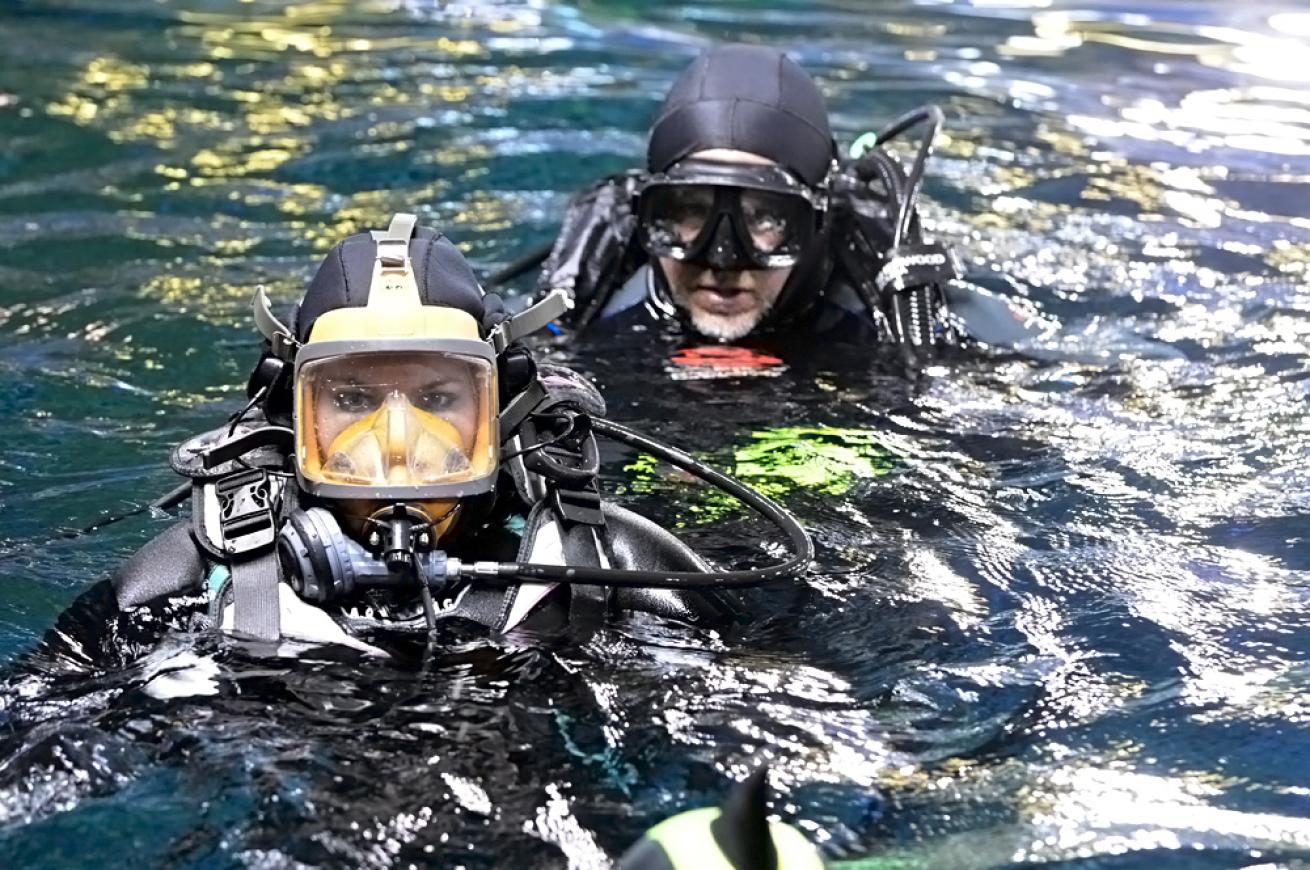
Courtesy of the Cody Unser First Step Foundation
At the Back of the Boat
Interviews with Notable Figures in the Dive Industry
**
July 2011:** Cody Unser, Founder of Cody Unser First Step Foundation
During sixth-grade basketball practice in 1999, Cody Unser fell ill with the spinal disease Transverse Myelitis (TM) and was admitted to the hospital. The next day, she could no longer walk. Paralyzed and in a wheelchair but energized in her quest to build awareness of TM and find a cure for paralysis, Unser started the Cody Unser First Step Foundation. Two years later, at her family’s urging, she traveled to Cozumel, Mexico, to become PADI certified. Lost sensation reappeared, and the sport buoyed her spirit in a way nothing else had. Since that trip, Unser has become dedicated to sharing the physical and mental benefits of scuba. Through her organization Operation Deep Down, an offshoot of her First Step Foundation, she is responsible for certifying more than 100 veterans. This summer, we spoke with Unser about a study she helped sponsor to research the healing effects of scuba on paralyzed divers.
**
Bottom Time: We understand that First Step Foundation helped organize a study that looked at the healing powers of scuba on disabled divers. When was that?**
Cody Unser: From May 5th to May 12th, 2011, the Cody Unser First Step Foundation teamed up with researchers from Johns Hopkins University, International Center for Spinal Cord Injury at Kennedy Krieger Institute, and CUFSF supporters, the Paralyzed Veterans of America and PADI scuba diving instructors to not only certify nine paralyzed vets but to also study the effects of scuba on the paralyzed body.
BT: Who was involved?
CU: A group of 30 — the nine vets, adaptive scuba instructors, volunteers and foundation staff — gathered in the beautiful waters of Grand Cayman.
BT: How does scuba diving feel for those with paralysis?
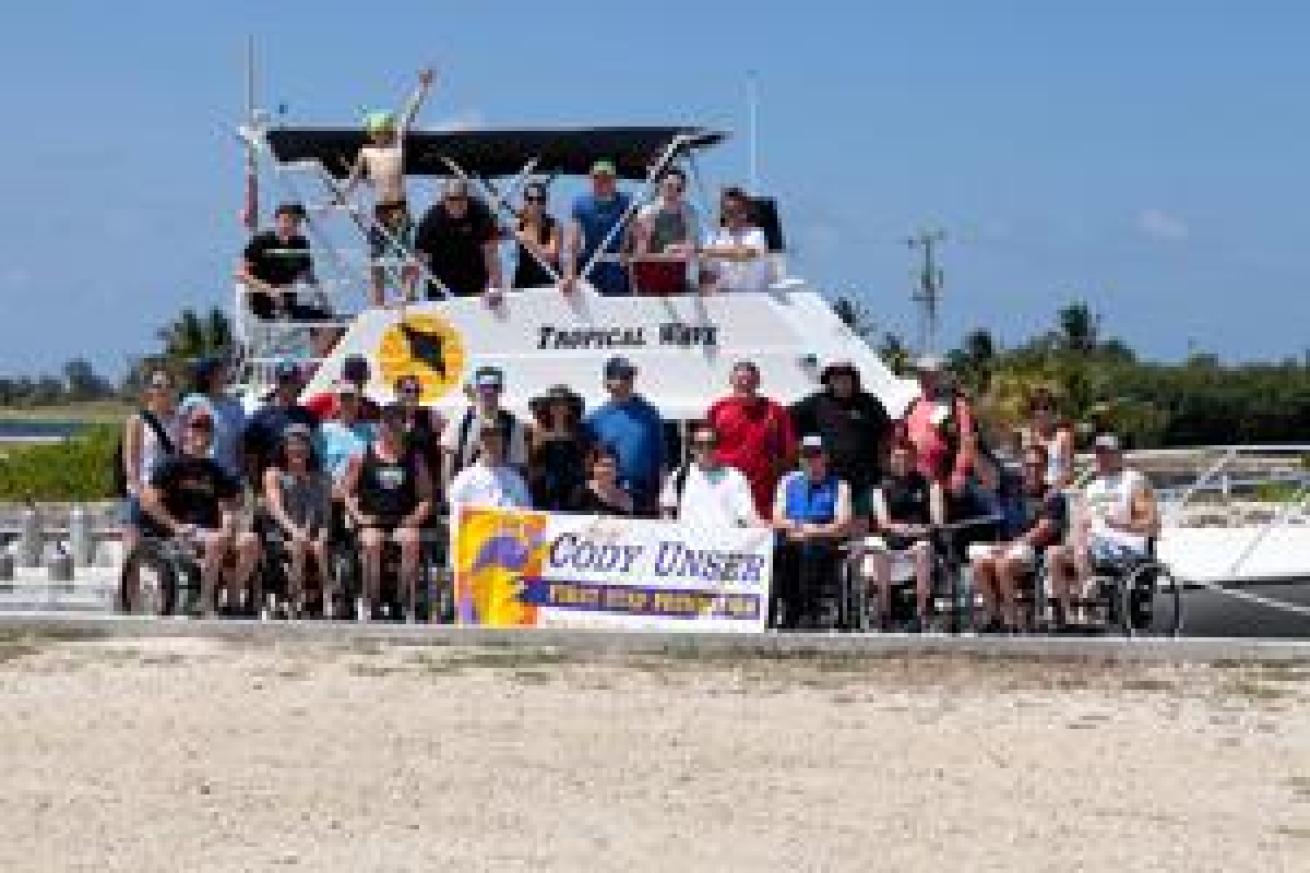
CU: The great Jacques Cousteau expressed how he felt about the freedom of scuba diving by saying, “From birth, man carries the weight of gravity on his shoulders. He is bolted to earth. But man has only to sink beneath the surface and he is free.” For the paralyzed body, this feeling of freedom is multiplied by a million, as scuba unlocks not only the bolts to earth, but also the bolts that lock the body to the wheelchair. Like science and technical theory led to the explanation of gravity, the research team on this scuba adventure is exploring the science and technical theory scuba may have on the psychological and neurological networks within the bodies who are paralyzed.
BT: What did this mean to you personally?
CU: To be able to put scuba diving on the map as a therapeutical choice for people with disabilities means the world to me, and it has taken so many people and wonderful hearts to invest in this project in order for it to come to fruition. Without people who invested their time and dollars, this experience would not have happened and I want to thank them all from the bottom of my heart for their generosity.
BT: What do you think the vets ultimately got out of the experience?
CU: What I witnessed below the ocean’s surface for eight days was nine veteran heroes determined to just get down there. The experience of my foundation’s quality-of-life program, “Cody’s Great Scuba Adventures,” focuses on scuba diving, but as the sun sets each day, the connections that had been developing allow the personal stories and feelings of these vets to pour out. We may not be able to imprint our feet in the warm sand, but scuba diving sets us free and shows us that everything we may think is impossible actually isn’t.
For more information on Cody Unser and her foundation, visit First Step Foundation.


